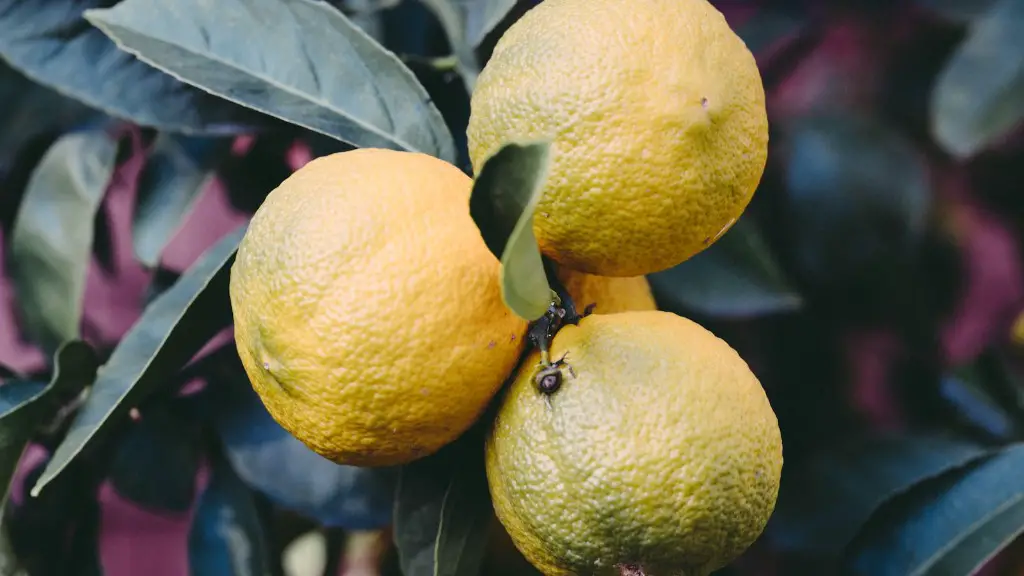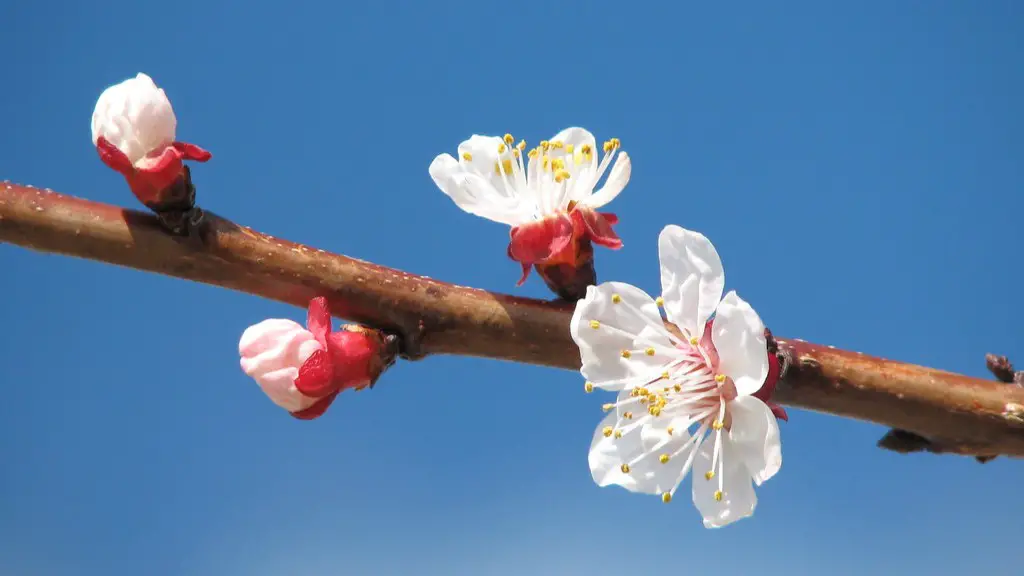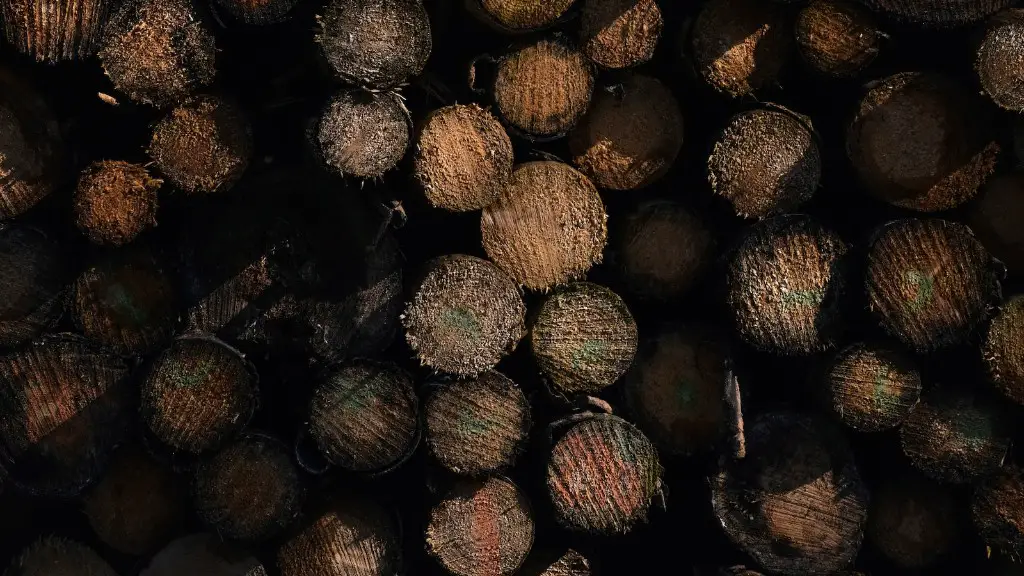Meyer lemon trees make perfect houseplants, as they require little space, minimal care and don’t require much pruning. Their full-size flowers and tart-sweet fruit make them a welcome addition to any indoor garden. But how often do they need to be fertilized?
The answer is that it really depends on the age of your Meyer lemon tree. For younger trees, it is recommended to fertilize every 1-2 months. If your tree is more mature and has been potted for quite some time, you should reduce the frequency to once every three months.
The important thing is to identify the type of fertilizer you need. It should have both nitrogen and potassium in equal amounts, as these are the two key nutrients for healthy Meyer lemon tree growth in pots. If you can, opt for an organic fertilizer with slow-release properties. This will result in a more even distribution of nutrients and make them more easily available to the tree.
The amount of fertilizer to use also depends on the season. During the summer growing season, you can use a heavier dose of fertilizer to encourage more flowering and fruiting. During the winter months, on the other hand, when the tree goes dormant and growth slows down, it is best to use a light dose of fertilizer every two to three months instead.
It is also important to remember to water your tree regularly, as this will help ensure that the soil has the right amount of moisture to absorb the fertilizer. As a general rule of thumb, aim to water the tree when the top inch of the soil has dried out. This should be done both before and after fertilizing.
Best Time for Fertilizing a Meyer Lemon Tree in a Pot
When it comes to fertilizing Meyer lemon trees, timing is key. Ideally, you should fertilize your tree during the spring and summer months, when it is actively growing and flowering, and again during the fall and winter months, when it has gone dormant and growth has slowed down.
You should avoid fertilizing during the middle of summer, as this can cause your tree to grow too rapidly and become unbalanced. You should also avoid fertilizing while your tree is flowering or fruiting. Instead, wait until the flowering and fruiting has finished, before you start fertilizing again.
It is also important to use the right type of fertilizer. As mentioned above, it should have both nitrogen and potassium in equal amounts, as these are the two key nutrients for healthy Meyer lemon tree growth in pots.
Finally, it always pays to follow the manufacturer’s instructions, as they will vary depending on the type and brand of fertilizer you are using.
How to Apply Fertilizer for a Meyer Lemon Tree in a Pot
When it comes to fertilizing your Meyer lemon tree, the process is relatively simple. To begin, you should water your tree as normal, and then spread the fertilizer evenly across the soil’s surface.
Once you have spread the fertilizer, you can use a garden spade to lightly incorporate it into the top few inches of soil. Alternatively, you could use a watering can to sprinkle water over the soil and fertilizer, which will help it sink into the soil.
It is important to remember that you should never apply fertilizer to dry soil, as this can result in the fertilizer burning the roots of your tree. Additionally, never apply too much fertilizer, as this can result in excessive leaf growth and poor-quality fruit.
When you are finished, you can water the soil until it is evenly moist, then give it a couple of weeks to allow the fertilizer to work its way into the root system.
What Signs to Look out for a Meyer Lemon Tree in the Pot
It is important to keep an eye on your Meyer lemon tree for any signs of nutrient deficiency. If you notice any of the following symptoms, then you may need to increase the frequency of your fertilizer applications:
- Leaves turning yellow
- Small, malformed leaves
- Poor flowering and fruit production
- Weak, spindly growth
If you notice any of these symptoms, then it is likely that your tree is suffering from a nutrient deficiency and will benefit from additional fertilizing.
Other Forms of Fertilizer for Meyer Lemon Trees in Pots
In addition to regular fertilizer applications, you should also consider other forms of fertilizer for your Meyer lemon tree. For example, liquid source fertilizers, such as fish emulsion, can be applied directly onto the leaves of the tree, as they are able to absorb the nutrients more quickly and effectively.
You can also use compost or other organic matter to supplement your regular fertilizer applications. This can help ensure that your tree is getting all the nutrients it needs, as well as providing a good source of organic matter.
Finally, you can also consider boosting the fertility of your soil by using fertilizer spikes or fertilizer tablets. This can be a great way to ensure that your tree is getting the extra nutrients it needs throughout the year, without having to apply too much fertilizer.
General Guidelines for Fertilizing Meyer Lemon Trees in Pots
When it comes to fertilizing Meyer lemon trees in pots, there are a few general guidelines you should follow. Firstly, you should always use the right type of fertilizer, as this will affect the health of your tree. Secondly, you should fertilize at the right frequency, as this will ensure that your tree is getting the nutrients it needs throughout the year.
It is also important to use the appropriate amount of fertilizer for each application, as this will help prevent any nutrients from being wasted. Lastly, it is important to remember to water your tree before and after fertilizing, as this will help ensure that your tree is able to absorb the nutrients more effectively.
Organic or Chemical Fertilizers for Meyer Lemon Trees in Pots
When fertilizing Meyer lemon trees in pots, you may be wondering which fertilizer is best — organic or chemical? The answer is that it really depends on your needs and preferences.
Organic fertilizers typically contain slow-release nutrients, which means that they are more efficiently absorbed by the soil, and the nutrients are available to the tree for longer periods of time. Chemical fertilizers, on the other hand, tend to be more concentrated, and the nutrients are more immediately available.
Ultimately, the choice between organic and chemical fertilizer will come down to what works best for your tree. If you are new to gardening, then a balanced organic fertilizer may be a good place to start, as this will provide your tree with the nutrients it needs without causing any damage.
Environmental Considerations for Meyer Lemon Tree in Pots
When fertilizing a Meyer lemon tree in a pot, it is important to consider the potential environmental impacts of your actions. Fertilizers can cause water pollution if they are applied too frequently or if they are improperly disposed of. As such, it is important to follow the manufacturer’s instructions and use only as much as is recommended.
Additionally, you should avoid using chemical or synthetic fertilizers where possible, and opt for organic fertilizers instead. This will help ensure that the right amount of nutrients are being applied to the tree, without risking any damage or negative environmental impacts.
Finally, it is important to remember to dispose of your fertilizer safely. If you are using a chemical fertilizer, then you should consider composting it, as this will help keep it out of the water supply. Alternatively, you can bury the fertilizer deep in the soil, to ensure that it does not leach into the soil and water.





